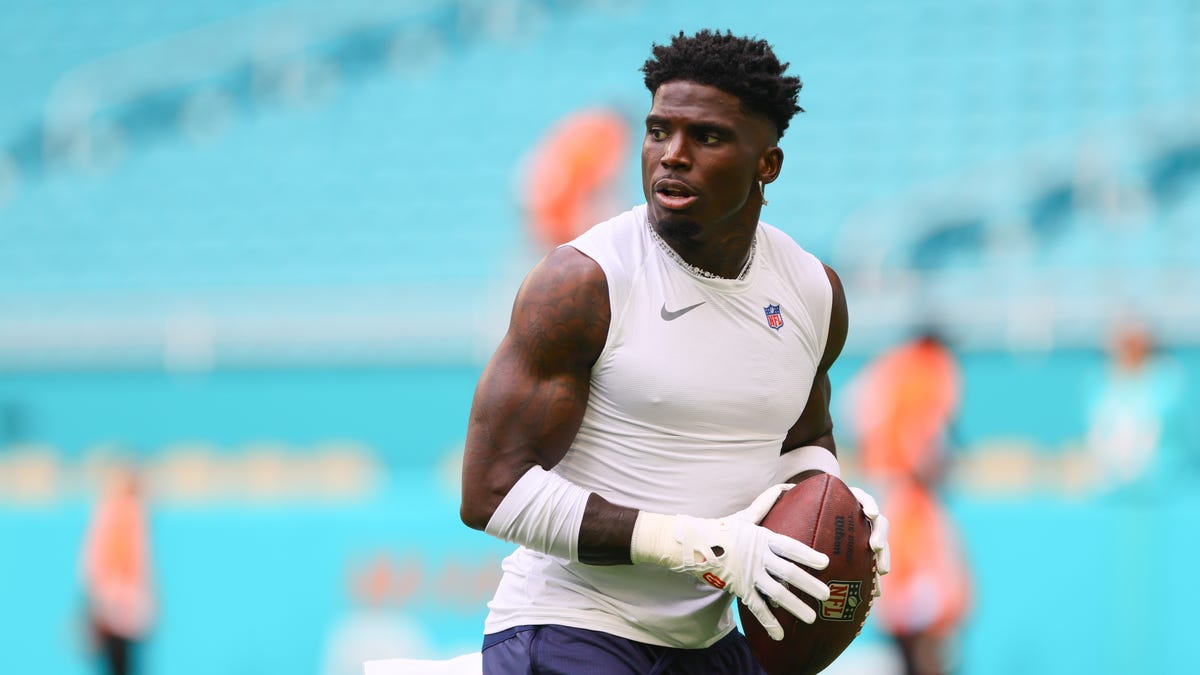Before that terrible moment, Dolphins’ Tyreek Hill overlooked something important: the talk
Tyreek Hill overlooked a crucial aspect during his interaction with the overly aggressive police who pulled him over for a traffic violation. He forgot about the talk.
Many Black Americans have received the talk. It’s something shared by family members or friends. A few years back, when I encountered police, the talk echoed in my mind. A police car began to follow me for about five minutes. Anticipating a traffic stop, I organized my documents and placed them on the passenger seat.
Eventually, the flashing lights appeared. The officer informed me that my inspection sticker was expired. It was true; during the pandemic, I hardly used my car, let alone got it inspected. The officer acknowledged this and reminded me to take care of it soon. As she approached, I rolled down my window and placed my hands on the steering wheel to signal I wasn’t a threat. I explained to the officer that I was unarmed and had no weapons in the vehicle.
My mother had instilled all these important lessons in me long ago. The talk was at the forefront of my mind during that encounter.
There was another traffic stop later on. This time, a different officer in a different state acknowledged that he clocked me at just 5 mph over the limit. A white woman was in the passenger seat with me, and she began to argue with the officer, questioning the need for a stop over such a trivial issue.
I gently tapped her knee to signal her to be quiet. She stopped talking; she had never received the talk and didn’t require it.
As the officer continued speaking, my hands remained on the wheel check. ID and insurance were ready to show check. No sudden movements check. Communicating that I was unarmed check.
These are the essential guidelines for Black Americans. That’s the talk. That’s the training.
In that particular moment, Hill seemed to forget all of this.
The talk does not ensure safety. There have been instances where Black drivers have cooperated, yet police interactions remain hostile. Statistics indicate that Black drivers are more frequently stopped by police compared to white drivers, leading to increased risks of encountering unpleasant situations.
While the talk does not guarantee protection, it certainly enhances the chances of maintaining a peaceful interaction.
To clarify, absolutely none of this ordeal falls on Hill. Many non-Black drivers engage with officers confrontationally and may not face the same harsh treatment. There are countless videos showcasing such interactions.
Individuals who advocate for just compliance often do not adhere to their own advice when the situation involves someone who doesn’t resemble them. The same applies to those who would typically claim their rights.
Hill did not deserve that treatment, but he forgot. He unquestionably forgot about the talk.
I would be genuinely surprised if Hill had never been given that talk. I have yet to meet a Black person who hasn’t.
At that crucial moment, Hill likely saw himself as a star receiver for the Miami Dolphins. In reality, he was a Black man, and the rules apply differently. This is a core idea behind the talk. I was always warned that police might try to assert control, or worse.
The talk instructs you to never let that slip from memory.
Hill now appears to grasp this lesson. In a press conference on Wednesday, he mentioned that if he could relive that moment, he’d handle it differently.
“Now, does that give them the right to beat the dog out of me?” he questioned. “No.”
No, it surely doesn’t, but the talk is there to help avoid such situations. Its goal is to keep you safe and walk away from the encounter unharmed. It promotes preemptive de-escalation and aims to ensure your survival. The talk is based on extensive, often painful, histories of police interactions involving Black Americans, and it recognizes how law enforcement frequently behaves. Not every officer fits this description, but many do.
The talk serves as a protective measure born out of love, guiding individuals towards safety. It’s something Hill should never forget again.

